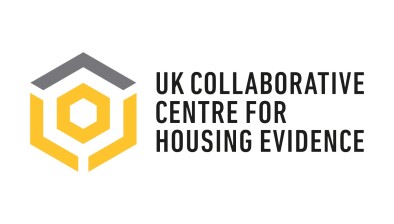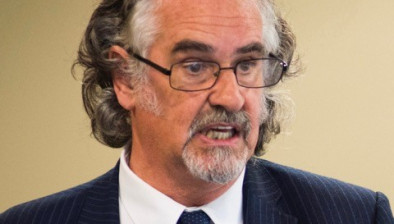Dr Gareth Young: LGBTQ+ people and housing - claiming our past, celebrating our present and creating our future

Dr Gareth Young
CaCHE knowledge exchange fellow Dr Gareth Young reflects on LGBT History Month and the work still required to make housing accessible for all.
Last month marked LGBT History Month which began back in 1994 in the USA by high school teacher Rodney Wilson who was teaching about the Nazis, and he revealed he was gay and could have been killed for this. It was founded in the UK in 2004 by Schools OUT UK co-chairs and first celebrated in 2005, following the repeal of Section 28 and was created to ‘claim our past, celebrate our present and create our future’.
Since then, there’s been considerable progress made for LGBTQ+ people, and we have discussed before how, in the UK, we have one of the most progressive statutory frameworks for promoting equality through the Equality Act 2010. However, just because legislation exists, it doesn’t mean that the implementation and delivery of services are free from discrimination.
Knowing how best to pitch blogs that reflect on equality in housing can be challenging. On the one hand, celebrating progress and good practice, which exists throughout the sector in the UK, is uplifting in what can feel like a very challenging political and societal climate. But, on the other hand, we see and hear of things continuing to happen that throw into sharp focus the discrimination people are still facing today.
I think we can probably strike a balance somewhere along the way, which we hope will help us continue to build momentum in helping to promote the important role we can all play in ensuring equality in housing in the UK.
Last June, CaCHE ran a Pride Month campaign, where we brought together people from across the housing sector to share insights into their own housing experiences in the UK, the work they were doing in the sector to help overcome discrimination and current and ongoing research. It was a moment, for me certainly, to take stock of the work happening and how many of us are trying to make changes for the better. We were very clear that we didn’t want it just to be a campaign for the month, but the start of an ongoing piece of work to bring people together to continue sharing ideas and good practice. Since then, I appreciate things haven’t taken off in any significant ways, but we have since published a few additional blogs, and behind the scenes, we have been continuing to have conversations.
February, LGBT History Month, felt like a sensible moment to stop and reflect on where we are going with this work and what CaCHE, along with partners, might be able to do. With our ongoing EDI work, we have been going deliberately, slowly, and carefully. It can be too easy to race into something and miss the mark, do things that could quickly – though not intentionally – amount to nothing more than ‘ticking the boxes’ or simply try to force something other people aren’t buying into. But one of my key ambitions is to find different ways of working across the sector with people with mutual interests and where joining forces can help our efforts to highlight the importance of an equitable housing future for all. We are also approaching the EDI work slightly differently than some of our other projects: our more traditional research projects. We are exploring the various aspects and experiences of housing – and, importantly, home – in more creative ways, where we can draw upon people’s experiences and stories as evidence, too. We need to continue to find ways to capture these stories for posterity and to help inspire future research agendas. I am still hoping we can build networks of organisations based on our collective interests.
One conversation that came from our Pride month was with Nicky Imrie, who is involved with OurStory Scotland, an LGBTQIA+ voluntary and charitable organisation that collects, archives, presents and celebrates the life stories and experiences of fellow LGBTQ+ people living in Scotland. Nicky, and indeed OurStory Scotland, have expressed an interest in working with us and others across the housing sector on this particular aspect of our work, and we are delighted that over the coming week, we will be publishing two blogs from Nicky. One will be about her own story and how she became involved in OurStory Scotland, and reflect on what oral histories are and their importance and relevance in our understanding of home and place today. The second blog will document some powerful stories from the rich OurStory Scotland archives.
I am delighted to be working with Nicky and OurStory Scotland to revisit some of these stories and think about how this can help inform and inspire our work. I am currently reading In The Dream House by Carmen Maria Machado. The opening chapters refer to the late queer theorist Jose Esteban Munoz, who said, “queerness has an especially vexed relationship to evidence… When the historian of queer experience attempts to document a queer past, there is often a gatekeeper, representing a straight present”. OurStory Scotland represents an archive without such a gatekeeper, and I am excited to be able to share some insights into their excellent work.
As ever with our EDI work, we want to keep talking to others and hearing about work taking place across the housing sector, and if anyone has ideas of things we can do collectively to continue to highlight and champion equality in housing, please drop me an email at gareth.young@sheffield.ac.uk.
This article was originally published on the CaCHE website.








